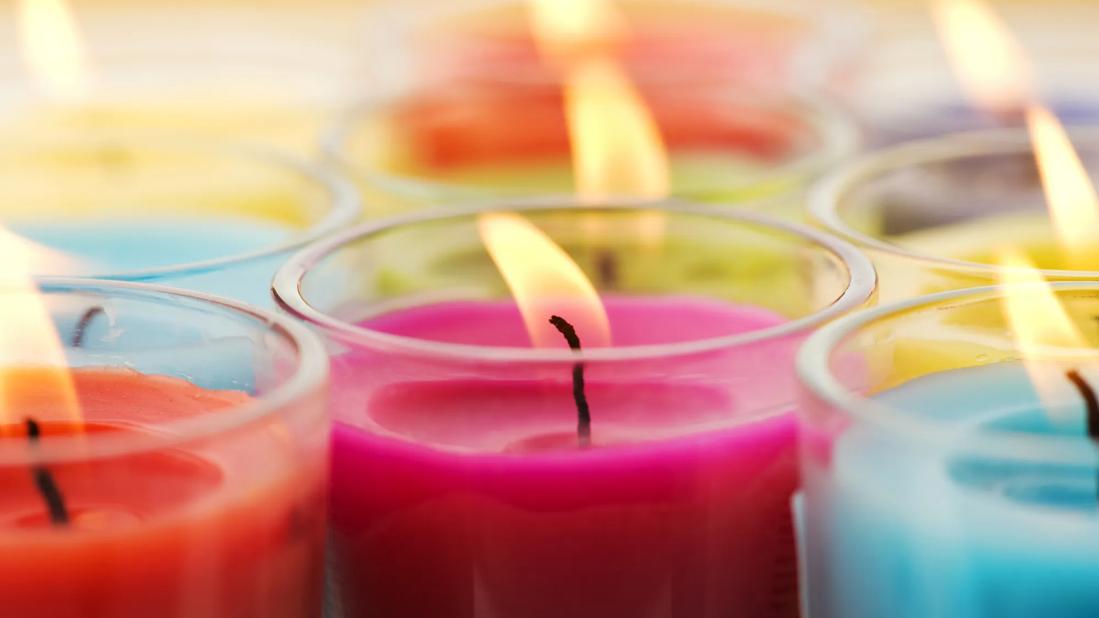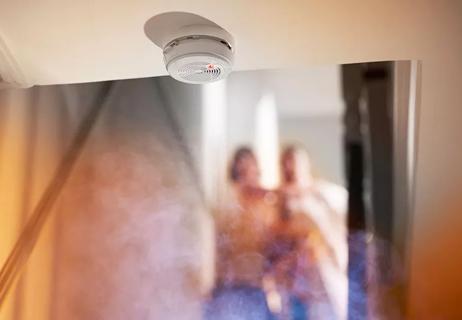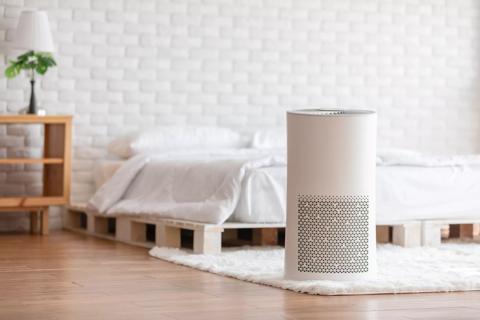Though they release a small amount of VOCs into the air, there isn’t enough strong evidence to say they’re dangerous to your health

There’s a reason candles play a role in religious traditions and mindfulness practices around the world. Fire is foundational to human life, and we respond to it accordingly.
Advertisement
Cleveland Clinic is a non-profit academic medical center. Advertising on our site helps support our mission. We do not endorse non-Cleveland Clinic products or services. Policy
It’s little wonder then that so many of us love burning candles, especially scented candles, in our homes.
But are candles bad for you? Pulmonologist Renee Dixon, MD, discusses the possible dangers candles may pose to your health and how to safely burn them.
Burning candles can contribute to poor indoor air quality, but what the medical and scientific community is split on is whether or not the emissions they generate, tiny as they are, can meaningfully impact your health.
So, are candles toxic?
Given all the available research, Dr. Dixon says she isn’t concerned for people who choose to light them up (in a well-ventilated space, at least).
You may have heard of volatile organic compounds or VOCs. As a candle burns, it releases hydrocarbons — chemical compounds consisting of hydrogen and carbon — into the air. In particular, burning candles releases trace quantities of toluene and benzene.
Toluene is commonly used in paint thinners and adhesives. Without proper ventilation, toluene exposure can irritate your eyes, nose, throat and skin. It can also cause headaches, dizziness, confusion and anxiety.
Benzene is a gas emitted by forest fires, volcanoes, and burning coal or oil. Benzene is primarily used in industrial and pharmaceutical settings, but the vast majority (90%) of all benzene exposure occurs as a consequence of smoking. Benzene is carcinogenic, having been found to increase the risk of leukemia and other blood cancers.
Advertisement
While you wouldn’t want to breathe in significant quantities of either toluene, benzene or any other hydrocarbons, the small amount released when you burn a candle is only cause for concern in certain situations.
Do candles cause cancer? Dr. Dixon says a small number of studies suggest an association between candle burning and bladder cancer.
“All these volatile organic hydrocarbons accumulate in the blood,” she explains. “They eventually get excreted through the bladder, hence the link with bladder cancer.”
As a result, Dr. Dixon says people under surveillance for, living with or in remission from bladder cancer might want to go easy on the candles. Likewise, she encourages people with chronic lung conditions like chronic obstructive pulmonary disease (COPD) to be mindful of the air quality in their homes.
But it’s important to note that the science isn’t strong enough to suggest we should stop buying and burning candles.
In fact, we engage in far higher-risk activities every day. For example, Dr. Dixon says indoor cooking increases the particulate matter in the air and has been linked to respiratory illnesses. A scented candle simply isn’t dangerous by comparison.
“There is no imminent danger,” she states. “You just have to be mindful about investing in high-quality candles and keeping them in well-ventilated areas.”
Wax type and quality can change the amount and kind of emissions the candle generates. While there’s no definitive science proving it does any harm, Dr. Dixon suggests avoiding paraffin wax. Paraffin is made from petroleum and seems to generate greater emissions than other waxes. And candles made from paraffin tend to be cheaper.
“In some cases, these cheaper products have more formaldehyde-generating materials and a lower melting point,” she explains. “It’s been suggested — but not proven — that cheaper candles are more dangerous because they have more VOCs in them.”
If listed, check the paraffin content of the candle you’re considering buying. Whenever you can, opt for beeswax, soy or other plant-based waxes instead.
While they may be pretty to look at, Dr. Dixon also suggests skipping candles that’ve been dyed.
“The dye used to color the candles has benzidine in it,” she reports, which is also linked to an increased risk of bladder cancer.
For every person who loves to unwind with a scented candle, there’s another person who gets a headache (or a runny nose) just thinking about them.
There isn’t any science that suggests scented candles are inherently more dangerous than the unscented variety. And like all candles, they release VOCs, but they do so in quantities that shouldn’t pose a health risk. For the safest possible aromatherapeutic adventure, select high-quality candles that don’t use dye or paraffin.
Advertisement
Regardless of toxicity, many people have allergic reactions to scented candles. For some, scented candles can even trigger asthma attacks.
While once a source of considerable concern, many countries have taken action to prevent the use of lead and metal-cored candle wicks, which can produce dangerous emissions and cause lead poisoning.
Australia was the first country to ban the use of lead wicks. While most American manufacturers stopped using lead in their candle wicks back in the 1970s, the Consumer Product Safety Commission (CPSC) didn’t ban the sale and importation of candles with lead-core wicks until 2003.
If you’re unsure whether your country has banned lead-core candle wicks, just make a point to shop for candles with paper-core, cotton or wood wicks.
In many cases, the therapeutic benefits of burning candles may far outweigh any health risks they may pose. But that doesn’t mean you can’t make healthy choices to improve the experience and protect against accidents.
While expensive candles may be bad for your wallet, they’re a good investment in your health.
“Studies suggest that lower-quality candles emit more particulate matter and chemicals,” reiterates Dr. Dixon. “Higher-quality candles burn off very slowly.”
Advertisement
So, if you’re looking to minimize risk, stick with the fancy stuff.
Of course, the safest candle in the world is only as safe as the person burning it. That’s why following candle safety guidelines is crucially important.
If you’re looking for a reason to stop burning candles altogether, the most obvious safety hazard — fire — is also the most significant.
According to the National Fire Protection Association (NFPA), firefighters respond to an estimated 5,910 structure fires in the U.S. that candles cause every year. The result: an average of 74 deaths, 558 injuries, and $257 million in property damage.
While they’re smaller than the fires we burn in bonfires, fire pits and fireplaces, we should still use caution and common sense when interacting with candles. The following safety tips will help keep you and your family safe:
Advertisement
If you’d rather avoid candles altogether, but still want the feeling of a lit candle in your home, consider these alternatives:
So, are candles dangerous? While not all candles are created equal, there isn’t enough strong scientific evidence to suggest that they’re a danger to your health. As long as you’re taking all the proper fire-safety precautions, go ahead and “get lit.”
Learn more about our editorial process.
Advertisement

Open the windows, keep a clean house and consider putting in preventive features like carbon monoxide detectors

There’s no safe way to find, handle, repair or remove asbestos yourself — it’s always a job for a professional

Investing in a humidifier and keeping yourself hydrated can help you stay healthy despite dry air

Most post-fire deaths occur because of smoke inhalation

6 tips for protecting your lungs while you work

Benefits may go beyond breathing

You’re sharing your sheets with dust mites, bacteria and lots of dead skin, so you’ll want to keep your bedding fresh

Don’t ‘go with the flow’ if you have issues with urge incontinence or a contagious infection

Wearing a scarf, adjusting your outdoor activities and following your asthma treatment plan can help limit breathing problems

Your diet in the weeks, days and hours ahead of your race can power you to the finish line

When someone guilt trips you, they’re using emotionally manipulative behavior to try to get you to act a certain way